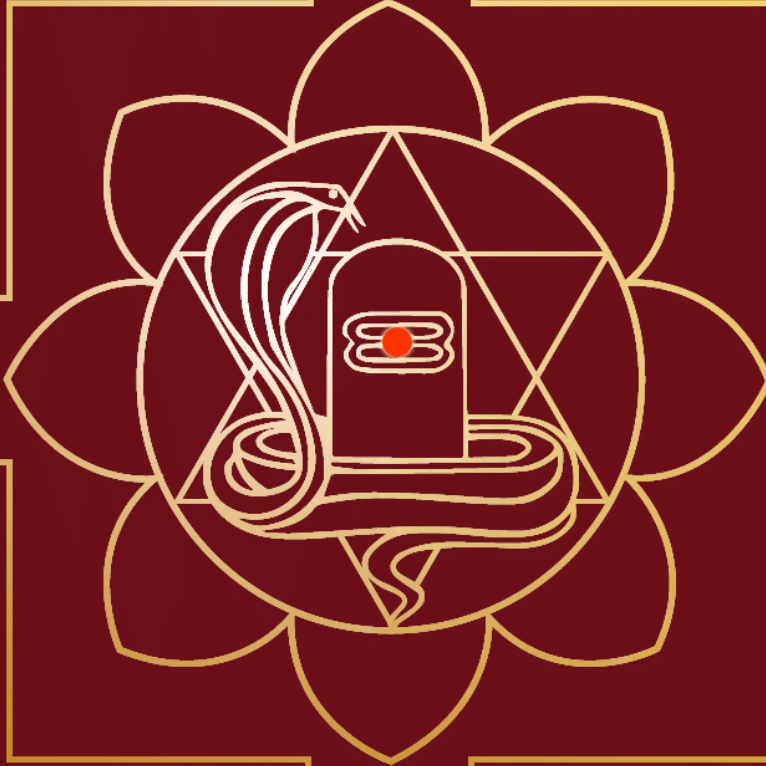Satsang on Seva and Dharma
with Guruji Maharaj and Guruma Dipti
Seva is an offering to God. Every living being and every particle of this universe is a particle of Shiva. This means that it is Shiva doing Seva. We are not doing this action, this Seva, for a particular person, we are doing Seva for Shiva. We sadhaks must always keep this in mind and this way, we will feel deeply satisfied.
Difference between Dharma and Seva
Many people conflate the terms Dharma and Seva. Dharma refers to duty and responsibility. Seva in spirituality is the biggest duty of a Sadhak but there is a difference between Dharma and Seva. Some duties are compulsory, yet only the duties which come from within and to which we don’t have attachments to are called Seva.
– Dharma are the necessary responsibilities that come when someone becomes a sadhak.
* Many people think that by naming the source of their practice, the lineage and the Guru, that they are doing Seva. However, naming the source of the teaching is not Seva, it is the Dharma of a Sadhak. We are fulfilling our Dharma by naming the source of good things.
* Some people think that by teaching what they have learnt from their Guru is doing Seva, but this is not right. Knowledge is like a flowing river. In spirituality, to keep knowledge to yourself, closed up in a box, is considered a big sin. Whatever you learn, you have to pass it to others and this is the biggest dharma of a Sadhak, this is not Seva.
* When somebody asks for our advice and we guide them to visit a certain ashram or a Guru, this is not Seva, this is Dharma. It is our Dharma to help people who are seeking help.
– Seva is a selfless act.
* By doing Seva we don’t expect anything, we don’t want our name to be mentioned, we don’t have any connection to the recognition. Even if somebody thanks us or mentions our acts, we are not attached to it. When this kind of feeling is generated by doing a selfless act, an act which is not compulsory, an act which is coming from inside, this is Seva.
* Seva is not connected to recognition and this gives us the divine connection and deep satisfaction inside. When somebody chooses to support, behave and act out their duties without recognition, without money in return, without even a “thank you”, continuing to do the good work, this is true Seva.
The benefits of Seva
As Guruji says, we all are a particle of Shiva and when we do Seva we should feel that we are in service to another particle of Shiva. If Shiva is equivalent to me and I am equivalent to others, Shiva is also equivalent to the other. What we think we are doing for others, we are actually doing for ourselves. When you understand this, you get the kind of happiness and satisfaction which you cannot get from the ‘finer things in life’ or even your relationships. That kind of Divine happiness is coming from within, without expectation. It also teaches us detachment and liberation.
By doing Seva we receive the divine blessing of that action. When we touch divine feet, a beneficial energy connection happens. In a similar way, when we speak bad words to somebody, that person listening can get connected to that bad energy, and when you speak good words, they can connect to the good energy of that.
So when we do any Seva, not only human Seva, but also caring for plants or animals, for example, our energy gets connected to that particular plant and some energy transfer happens. When we ask for a blessing from somebody, we ask for his/her energy rays to get connected with our rays. When we give food and water to a hungry and thirsty dog and the dog feels better, the rays automatically come. This is coming from within, nobody can stop it. When you go shopping and see a sweet baby, you don’t need to say it, the feeling comes and automatically the energy transfer happens.
It is not important to say and express good things every time, but when you feel it from your heart and you express that, the energy passes. When you do Seva and you don’t have the attachment to recognition or reciprocation, automatically the good energy of whatever you have done will get transferred to you and it helps to amplify your energy.
It is like bonus points in spirituality, what you earn for your Sadhana, and these Seva points are added on to your Karma. It is also like good Karma points! But if you say you are doing Seva and you think you have wasted your time, it is like saying you have wasted the water and the food by giving it to the dog, and you are not doing Seva anymore. Your Seva was corrupted. This is why it is important that you have to decide properly first if you want to do the Seva, and then you do it without attachment.
Different types of Seva
– Seva towards nature which everybody is bound to do.
– Seva towards human beings which requires wise consideration.
With Seva for nature, there is no doubt that it will always give you good blessings, good energy, because you are born from nature and one day you will die and be sublimed to nature – this is the cycle for everybody.
When we do Seva for any human being, we need to be aware if the action is right or wrong, whether it is needed, and how much is needed. We need to know that. Sometimes we don’t think about the needs of the person and we give them more than enough and they misuse it. This way, we become partners in whatever the consequences.
Donation and Seva are two different things. Donation is giving money or an item. If you give something materialistic, it is a donation. Seva is helping with action, not by giving money or material goods. It is important that when you decide to give either a donation or Seva to a human being that you see what is actually the need. If somebody is hungry, they need a chapati. If we give them a diamond necklace, this necklace is useless for him, and we are not helping the hungry person. We need to be conscious about what Seva is needed. When we give what is truly needed, it is of real value. When we give what is not needed, it doesn’t count.
Animals or plants are not expecting anything but human beings have expectations. This is why it is important to see clearly to whom we are offering. We need to see if it is valued by the person receiving and whether the person is having any negative emotion towards our Seva. We need to be aware of this and think wisely before we decide to give donations or do Seva.

